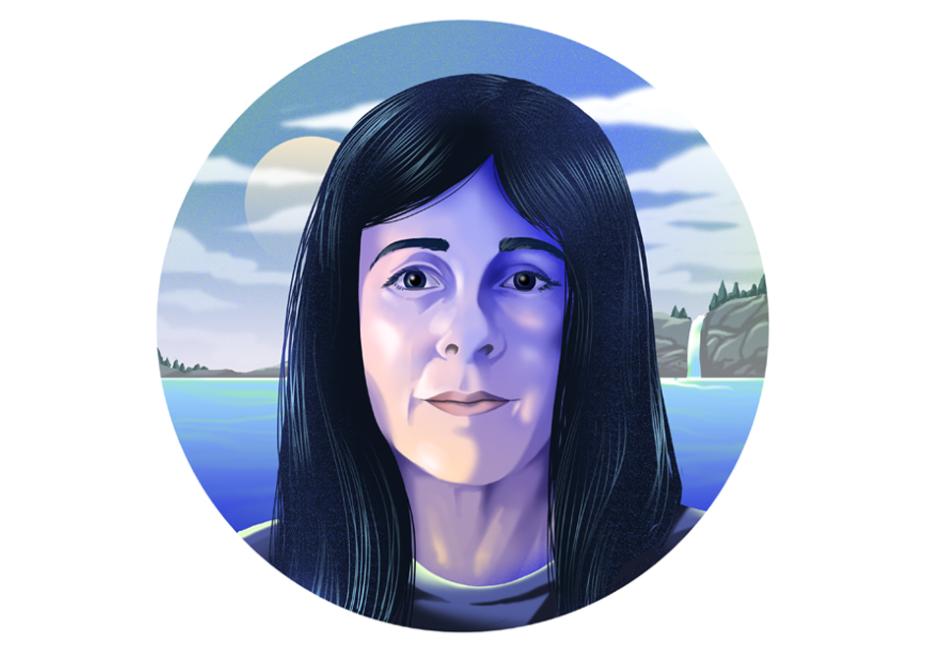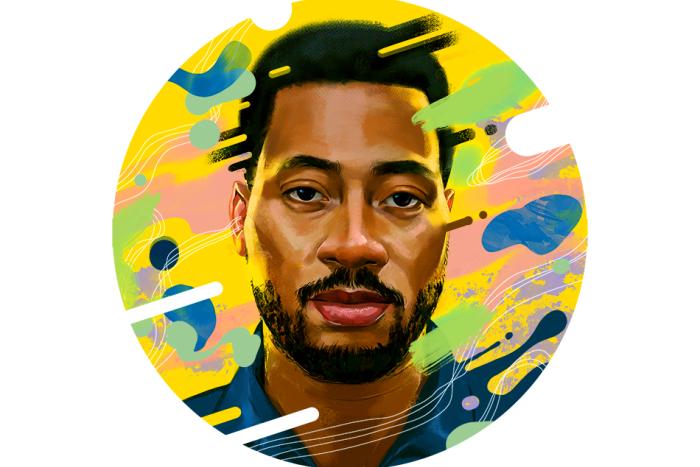Welcome to Bizarre Celebrations, a column about storytellers, craft, and everyday encounters with technology.
Back when I still had a Twitter account, my early riser schedule got me an eyeful of the August 2015 explosions in Tianjin, China. In the Tianjin port, an initial explosion of nitrocellulose led to a much bigger detonation of eight hundred pounds of ammonium nitrate. Nearby residents posted dozens of videos of the blast and subsequent shock wave, which shattered windows up to two blocks away. As reports of the devastation trickled out, one specific detail compounded the tragic nature of the event. Of the 173 fatalities in Tianjin, 104 were firefighters. By the afternoon, third cup of coffee in hand and screen in my face, I thought about the first responders, charged with protecting others, who had run headlong to their deaths. I had a cry, but my virtuous tears were of no worth to the firefighters’ families. It did help me clear a little emotional space before the next tragedy came across my feed. And the next. My experience was essentially that of a passive observer, and that stoked an ever-mounting feeling of helplessness and horror at the individual experiences that flood social media.
Technology regularly outpaces human evolution, and the online experience of non-stop global disasters seems to be way beyond our processing power. The modern response to this deluge of tragedy often feels painfully cynical. An empathy gap is obvious in online commenters who suggest, for example, that flood victims earned their fate through the foolhardy choice to live near water, that earthquake victims shouldn’t have lived near fault lines, and so on. From the perspectives of urban planning, wealth distribution, and overpopulation, this reasoning is as cruel as it is illogical. The term “touch grass” comes to mind.
At the other end of the spectrum, social media also allows users to identify with tragedy in real time, in a conspicuous and rather absurd way, by inserting themselves into other people’s tragedies. On the evening of November 13, 2015, the world learned of a series of coordinated terrorist attacks that took place in Paris. At least one hundred and thirty people were killed and more than three hundred and fifty were injured. In the hours that followed, I read a number of Facebook posts that coupled an earnest expression of sympathy for those who were suffering with personal narratives of having once been to Paris on vacation. Some had only experienced a stopover at Charles de Gaulle but wanted to express their solidarity with the French people. Others hoped to go to Paris someday. Although the tragic nature of this event had nothing to do with anyone’s vacations, this was the narrative that many chose for their empathy.
All of this is to say—with a little bit of amusement and a lot of (virtuous!) empathy—that humans respond to tragedy personally. In literature, this presents a challenge that has resulted in a dearth of truly tragic contemporary novels. I’m defining literary tragedy not only as a tale of very sad events, but as a story where the outcome feels inevitable, inescapable, and offers little hope for the protagonist. In other words, for a story to be considered a true tragedy (not just a tearjerker or a horror), the protagonist must end up either dead or better off dead. If our natural instinct is to become the main character in someone else’s misery, crafting a story in which readers are dragged through a character’s life while they meet nothing but hardship, and are still left feeling satisfied for having experienced it, is no small feat. A successful tragic novel is a subversive “it’s about the journey, not the destination” exercise. Although both journey and destination are grim, the details must still crackle with the larger-than-life quality we look for when escaping into a narrative. And yes, sorrow can be sweet. William Shakespeare’s Juliet knew what was up.
Here are the elements that I believe make for a successful tragedy: empathetic language that cradles the reader through discomfort; a writing style so thoughtful it’s impossible not to feel like you’re in good hands; and multiple warnings (some subtle, some not) that things aren’t going to end well for these characters, designed to slowly build understanding and acceptance in the reader.
When I say empathetic language, I don’t mean that the writing has to be soft or apologetic. The narrative voice in Cormac McCarthy’s The Road is rugged and stripped bare—the story told in a last gasp. Which is appropriate, of course, for a father and son’s journey through a post-apocalyptic wasteland. Their goal is simply survival. The requirements for survival are a cocktail of resilience, acceptance, and luck. The man and the boy scavenge sites for life’s necessities, most notably food and weapons. This keeps them in constant motion through unknown territory. When they stumble upon a loaded cache, readers get to experience moments of optimism and safety. When their collection of goods is lost or stolen, both characters and readers must contend with disappointment and misery. We want a happy ending for these characters, because of our inherent empathy, and perhaps because it somehow suggests the possibility of our own happy ending: that we can endure hardship and eke out some kind of measurable success in our own lives.
But what is “success” in The Road’s world? While our understanding of the novel’s setting is limited, it’s clear there has been an ecological disaster. Finding clean water is challenging, marauders roam the land, and some of the humans who remain have resorted to unthinkable behaviour, like cannibalism. It seems that suffering begets suffering in this world. Every time we experience another of the man’s setbacks, we slowly become accustomed to the idea that the best the protagonists can hope for is to continue living, though life in their world isn’t great. This Catch-22 follows us right to the end of the story, which is somewhat ambiguous. Readers have argued about whether the boy’s fate is a happy ending, with continued existence, or a tragic ending, with some kind of death trap, but the reality here is that neither of these possibilities are particularly cheering. At the end of the novel, that is the grim message we must contend with.
So why read The Road, aside from the fact that having a few McCarthys under your belt will always give you something to chat about with the guys in your MFA? Unlike doom scrolling, which can present a new disaster with every flick, The Road offers a beginning, middle, and end. Social media can suggest to users that tearing our eyes away from the climate disaster for a moment constitutes some kind of betrayal of those who are suffering from extreme weather events. But a novel like The Road offers closure, even if it’s dark. There is a personal benefit in sitting with a tragic story for a prolonged time. It allows us to think about how humans navigate loss.
A more vigorous and exciting contemporary example of tragedy is Jacqueline Harpman’s I Who Have Never Known Men (translated from French by Ros Schwartz). Another speculative literary novel, this is a story of thirty-nine women and one girl—the novel’s protagonist—held captive in an underground cell. There is no entertainment, no way to discern day from night, and mealtime is their only contact with a couple of stone-faced guards. The women in the bunker have some memory of life before captivity, but the girl does not.
While The Road confronts us with the bleakness of planetary destruction, the sensory deprivation chamber in which Harpman holds her characters (and, therefore, readers) leaves no choice but to travel deep into our bodies. It is this exploration of the senses that makes the journey so beautiful and original. There is a big difference between a story that examines a ravaged world from the top down and one that locates that destruction in our bodies. Harpman’s language of empathy is ultra-human and visceral. In the bunker, the girl decides to learn the variations in the guards’ schedule. She does this by painstakingly counting heartbeats: 3,220 beats one day; 5,012 the next. She asks a shocked fellow prisoner to convert this into a form of measurable time. The process takes several pages. They compare differences in their own heartbeats, do the math, and voila! A day is created, from the organ that pumps our blood. Eventually, the story opens up somewhat, and our protagonist gradually discovers elements of human existence she was too young to have previously experienced. These same details—a silent planet, other bunkers, the slow death of her older companions—are markers that guide the reader to an acceptance of the protagonist’s inescapable fate.
The risk Harpman takes by subverting nearly all the common narrative elements we count on for entertainment and engagement—elaborate descriptions of setting, direct conflict between characters, and, most importantly, an explanation for the story’s core mystery—is either going to infuriate or delight readers. I’m in the latter camp, obviously. Even as I trudged toward a conclusion that couldn’t possibly satisfy my curiosity, I was grateful to take the journey and for the emotion it aroused. Nothing wrong with a good cry. I Who Have Never Known Men’s thoughtful, moody conclusion offers more than just catharsis, though. The protagonist’s extraordinary journey gives readers plenty of space to think about the ways that suffering lives in our own bodies, and the nature of human resilience.
In our modern experience of non-stop disasters, it can be tempting to look away. Fiction readers may understandably seek out avenues of escape. A horror novel or film might end in devastation, but at least it creates titillation via adrenaline along the way. Video games like the Fallout franchise invoke a post-apocalyptic world, giving characters similar scavenging and survival goals to The Road. But in the world of Fallout, the human characters have been given an edge. The game takes place years after the apocalypse. Disaster is in the rearview, and mankind has been somewhat successful in rebuilding, establishing frontier town settlements where life continues even if living conditions aren’t ideal. The agency given to a player of this game, who can adjust character strength and charisma and agility, and just restart after an untimely death, is not at all reflective of reality. Even video games such as the Amnesia series, with dark, subterranean settings and hopelessly doomed protagonists, provide a feeling of agency that comes from literally controlling a character’s actions. With a novel, we are no more than helpless observers, which is exactly how I felt watching those explosions in Tianjin.
But novels don’t need to prove their worthiness through their ability to cheer us up. Finding satisfaction in a fictional story that offers little redemption for the characters may involve one of the least virtuous human traits—relief that this isn’t happening to us. I do believe that in the hands of the right storyteller, it’s still a good ride.





